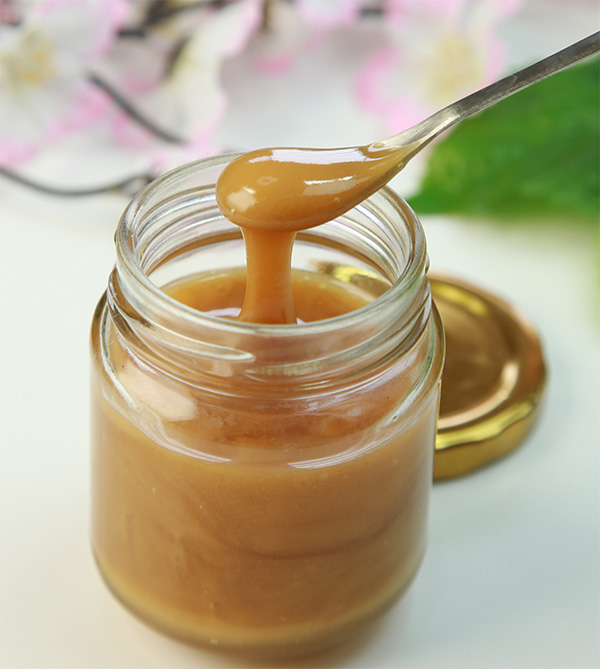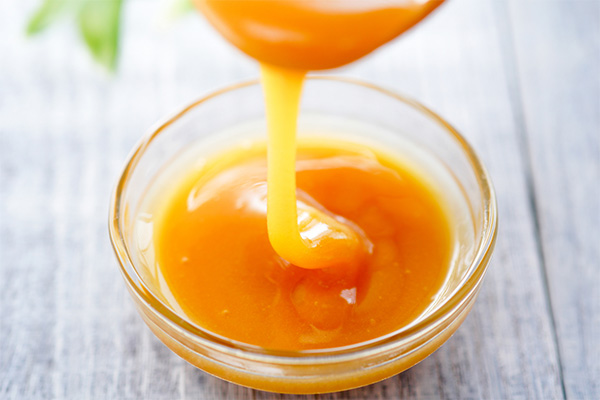Hailed for its remarkable therapeutic properties and cherished as a cherished culinary delight, Manuka honey has gained widespread recognition as a powerful ally in achieving radiant and flawless skin. This enchanting nectar, originating from the pristine landscapes of New Zealand, is not your ordinary honey. It is a treasure trove of antioxidants, antibacterial properties, and other remarkable nutrients that have the potential to transform your skincare routine.
In this blog post, we embark on a journey to explore the wonders of Manuka honey and understand the benefits of using it for the skin.
What Is Manuka Honey?
Manuka honey, also known as tea tree honey, is exclusively produced from the nectar collected from the flowers of the manuka tree (Leptospermum scoparium), a native species of New Zealand. European honey bees can only pollinate these flowers two to six weeks out of the year when the manuka bushes bloom.
All types of honey contain naturally occurring hydrogen peroxide. Manuka nectar, however, contains a secondary antibacterial compound known as methylglyoxal. Its exceptional richness in methylglyoxal contributes to its remarkably powerful anti-inflammatory, antioxidant, and antibacterial properties!
Honey can only be labeled as "manuka honey" if made from nectar gathered only from manuka flowers. Other honey is derived from many types of flowers, all gathered together. A rating scale was developed because some companies labeled their products as "manuka honey" when it was only 57% pure manuka honey. The Unique Manuka Factor measures the concentration and potency of the methylglyoxal and, by extension, how pure it is.
How Is Manuka Honey Good For The Skin?
Manuka honey is exceptionally good for the skin due to its unique composition and remarkable therapeutic properties. When applied topically, it can provide a wide range of benefits that promote skin health and enhance its overall appearance.
Manuka Honey Benefits For Skin

Antibacterial Properties
Manuka honey is a powerful antibacterial! Natural honey has always been known for its antibacterial healing properties since the ancient Egyptian days. This is because of the naturally occurring hydrogen peroxide. However, manuka honey benefits from methylglyoxal as well! Methylglyoxal is incredibly strong, with clinical and mechanistic studies showing it as effective against antibiotic-resistant strains of staph infections!! So, the bacteria hiding in your pores causing acne don't stand a chance. For acne-prone skin, applying it on skin topically is among the most beneficial treatments you can opt for.
Manuka honey contains flavonoid and polyphenol compounds that serve as powerful anti-inflammatories. Inflammation is one of the root causes of many skin conditions, and reducing this inflammation will take care of most skin issues. Skin inflammation can take many forms, such as acne, rosacea, eczema, itchy or scaly skin, sensitive skin, cracked skin, and more. The natural ingredients in manuka honey will reduce redness and calm inflammation.
Promotes Wound Healing
The wound-healing properties of manuka honey come from its ability to attract fibroblasts. These fibroblast cells are necessary for healthy tissue regeneration. If you regularly struggle with cystic acne, eczema, or contact dermatitis, you may have bouts of skin wounds on your face and arms. It will help treat wounds and speed up the wound-healing process.
Fades The Appearance Of Scars
The main focus of manuka honey is typically the presence of methylglyoxal, but let's not forget - just like all raw honey, it also contains hydrogen peroxide. This works as an antibacterial, but it also has mild lightening properties - meaning that it can help fade acne scars and alleviate hyperpigmentation!
Powerful Humectant
Due to its amino acids and sugar component, manuka honey is deeply nourishing and hydrating to the skin. Besides these moisturizing properties, it also operates as a natural humectant. Humectants pull water from the air down into the skin. This makes them hydrating in two ways—using their own moisture and pulling moisture from other sources! People who struggle with dry skin will see a difference if they incorporate it into their skincare routine!
Softens Skin
Not only is manuka honey a humectant, but it is also an emollient. Its emollient properties mean that it can help fill in the spaces between skin cells with restorative lipids, leading to a solid skin barrier and smooth skin!
Rich In Antioxidant Properties
Manuka honey contains polyphenols, which are very effective antioxidants! Antioxidants fight against free radical molecules in your body, which damage existing cellular structures. One of the benefits of manuka honey is that, because of this polyphenol, it can reduce the appearance of aging, repair skin cells, and help firm up fine lines.
Various skin conditions, like eczema, psoriasis, and rosacea, often involve inflammation. Fortunately, it contains anti-inflammatory compounds that effectively alleviate redness, swelling, and discomfort related to these skin conditions.
Natural Exfoliant
The gentle acidity of Manuka honey makes it a mild natural exfoliant. Upon application to the skin, it facilitates the loosening and removal of dead skin cells, unclogs pores, and purges impurities. Consistent use can lead to a smoother, more refined skin texture and a radiant complexion. Unlike harsh physical exfoliants, it provides mild and non-abrasive exfoliation, making it suitable for all skin types.
Stimulate Collagen Production
Collagen is vital as a protein that preserves the skin's firmness and elasticity. Collagen production naturally decreases as we age, leading to sagging and wrinkles. With its nourishing nutrients, manuka honey aids collagen synthesis, contributing to a more youthful and voluminous appearance. Consistent use of Manuka honey can assist in maintaining the skin's structural integrity and prevent aging signs.
Balances Skin pH
The natural acidity of Manuka honey helps balance the skin's pH levels, which is essential for maintaining healthy skin. Disruption of the skin's pH can give rise to a range of skin problems, such as dryness, sensitivity, and acne. Manuka honey's pH-balancing properties help create an optimal environment for the skin to function properly and maintain its natural protective barrier.
FAQs Of Manuka Honey For Skin

Is Manuka Honey Suitable For All Skin Types?
Many people wonder if Manuka honey is safe for their specific skin type. While it is generally well-tolerated by most skin types, including sensitive skin, it's essential to do a patch test before applying it to a larger area. Some individuals may have allergies to bee products or other components in the honey, so testing it on a small area of skin first can help identify any potential reactions.
How Do I Choose The Right Manuka Honey For Skincare?
The effectiveness of Manuka honey varies based on its Unique Manuka Factor (UMF) or Methylglyoxal (MGO) rating. The higher the UMF or MGO rating, the more potent its therapeutic properties. For skincare purposes, seek out ones with a UMF of 10+ or MGO of 250+. Authentic Manuka honey will also have a UMF or MGO certification label on the packaging.
Can I Use Manuka Honey As A Face Mask?
Certainly! Applying Manuka honey as a face mask is a widely embraced and efficient approach to harness its skincare advantages. Just spread a thin layer onto clean, damp skin and let it sit for 15 to 20 minutes before rinsing off with warm water. This practice aids in moisturizing, soothing, and exfoliating the skin, ultimately leaving it revitalized and invigorated.
Does Manuka Honey Help With Acne?
Manuka honey offers significant benefits to individuals with acne-prone skin with its antibacterial and anti-inflammatory properties. It effectively targets acne-causing bacteria and diminishes inflammation, leading to clearer and less irritated skin.
Can Manuka Honey Lighten Dark Spots Or Scars?
Manuka honey's natural healing properties may help fade dark spots and scars over time. Consistently applying Manuka honey to affected areas can promote skin regeneration and reduce the appearance of hyperpigmentation and scars.
How Often Should I Use Manuka Honey For My Skin?
The frequency of using Manuka honey on the skin depends on individual skin needs and concerns. For general skincare maintenance, using it 2-3 times a week as a face mask or spot treatment may be sufficient. However, individuals with specific skin issues may benefit from using it more frequently or in combination with other skincare products.
How Should Manuka Honey Be Applied To The Skin?
Many skincare products incorporate manuka honey for skin needs. Some manuka honey products include face masks, cleansers, and balms. A manuka honey face mask is a great weekly deep treatment. The cleansers are better suited for daily use. For deep hydration, look for a face balm that combines vitamin E, aloe vera, and shea butter.
Can I Leave Manuka Honey On My Skin Overnight?
Leaving Manuka honey on the skin overnight is considered safe for most individuals. However, if you have never done this before, start with a shorter duration, such as 30 minutes to an hour, to ensure your skin tolerates it well.
Is There A Difference Between Regular Honey And Manuka Honey For Skincare?
Yes, there is a significant difference between regular honey and Manuka honey in terms of skincare benefits. It has a much higher concentration of beneficial compounds like MGO, making this medical-grade honey more potent for skincare purposes than regular honey.
Can I Use Manuka Honey As An Anti-Aging Treatment?
Yes, Manuka honey's antioxidant properties can be beneficial for combating premature aging and promoting a more youthful complexion. It aids in neutralizing free radicals and promoting collagen production, resulting in firmer and more elastic skin.

